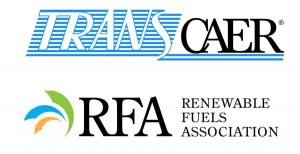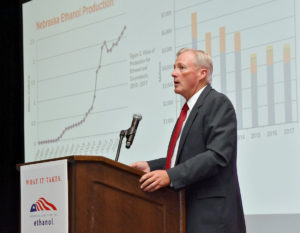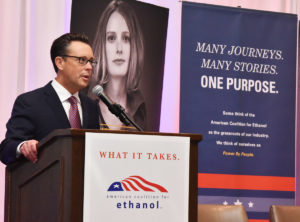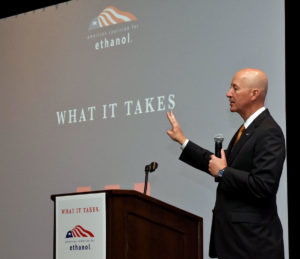 In the August Crop Production report released today, USDA’s National Agricultural Statistics Service (NASS) revised planted acres downwards, while at the same time increasing corn production to 13.9 billion bushels and raising the average national yield by more than 3 bushels to 169.5 bushels an acre in the latest World Agricultural Supply and Demand (WASDE) report.
In the August Crop Production report released today, USDA’s National Agricultural Statistics Service (NASS) revised planted acres downwards, while at the same time increasing corn production to 13.9 billion bushels and raising the average national yield by more than 3 bushels to 169.5 bushels an acre in the latest World Agricultural Supply and Demand (WASDE) report.
NASS noted that survey respondents who reported acreage as not yet planted for corn, cotton, sorghum, and soybeans in fourteen states for the Acreage report were re-contacted in July. “Excessive rainfall had led to planting delays and challenges at the time of the survey, leaving a portion of acres still to be planted for corn in Illinois, Indiana, Iowa, Kansas, Michigan, Minnesota, Missouri, Nebraska, New York, North Dakota, Ohio, South Dakota, and Wisconsin; cotton in Arkansas; sorghum in Kansas; and soybeans in Arkansas, Illinois, Indiana, Iowa, Kansas, Michigan, Minnesota, Missouri, Nebraska, New York, North Dakota, Ohio, South Dakota, and Wisconsin.”
Corn production for grain is forecast at 13.9 billion bushels, down 4 percent from 2018 but up 26 million bushels from the July projection as a decline in harvested acres is offset by an increase in yield, expected to average 169.5 bushels per harvested acre, down 6.9 bushels from 2018. The report indicates that Illinois, Indiana, Iowa, Minnesota, Nebraska, Ohio, and South Dakota are forecast to have yields below a year ago and Missouri is the only major producing state forecast to have yields higher than last year.
Soybean production for beans is forecast at 3.68 billion bushels, down 19 percent from 2018. Based on conditions as of August 1, yields are expected to average 48.5 bushels per harvested acre, down 3.1 bushels from 2018. Area harvested for beans is forecast at 75.9 million acres, down 4 percent from the previous forecast, and down 14 percent from 2018. Area planted for all purposes totaled 76.7 million acres, down 4 percent from the previous estimate, and down 14 percent from 2018.
In the August WASDE report, 2019/20 U.S. corn outlook is for larger supplies, reduced exports and corn used for ethanol, and greater ending stocks. Corn used for ethanol is reduced 25 million bushels to 5.5 billion. Exports are lowered reflecting U.S. export competitiveness and expectations of increasing competition from Argentina, Brazil, and Ukraine. With supply rising and use falling, ending stocks are up 171 million bushels to 2.2 billion. The season-average corn price received by producers is lowered 10 cents to $3.60 per bushel.
All cotton production is forecast at 22.5 million 480-pound bales, up 23 percent from 2018. All wheat production for grain is forecast at 1.98 billion bushels, up 3 percent from the previous forecast and up 5 percent from 2018.
 The Renewable Fuels Association, in partnership with TRANSCAER®, is hosting a free ethanol safety “Train the Trainer” webinar on Tuesday, August 20, for ethanol emergency response teams.
The Renewable Fuels Association, in partnership with TRANSCAER®, is hosting a free ethanol safety “Train the Trainer” webinar on Tuesday, August 20, for ethanol emergency response teams.











